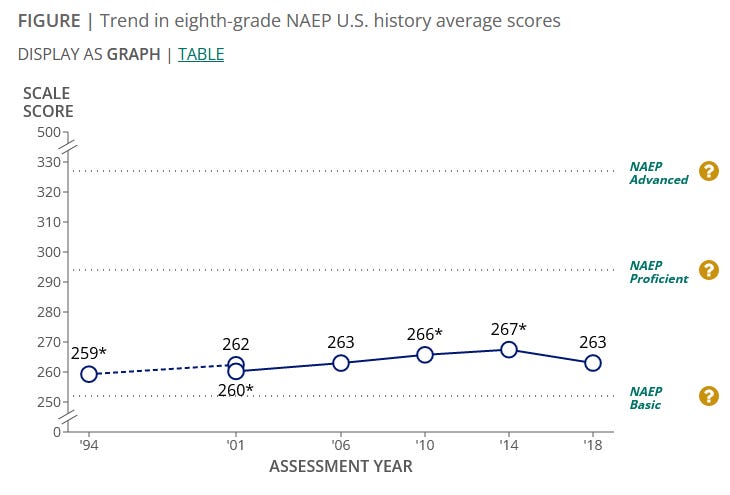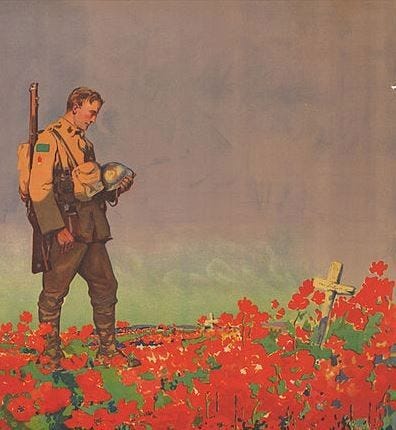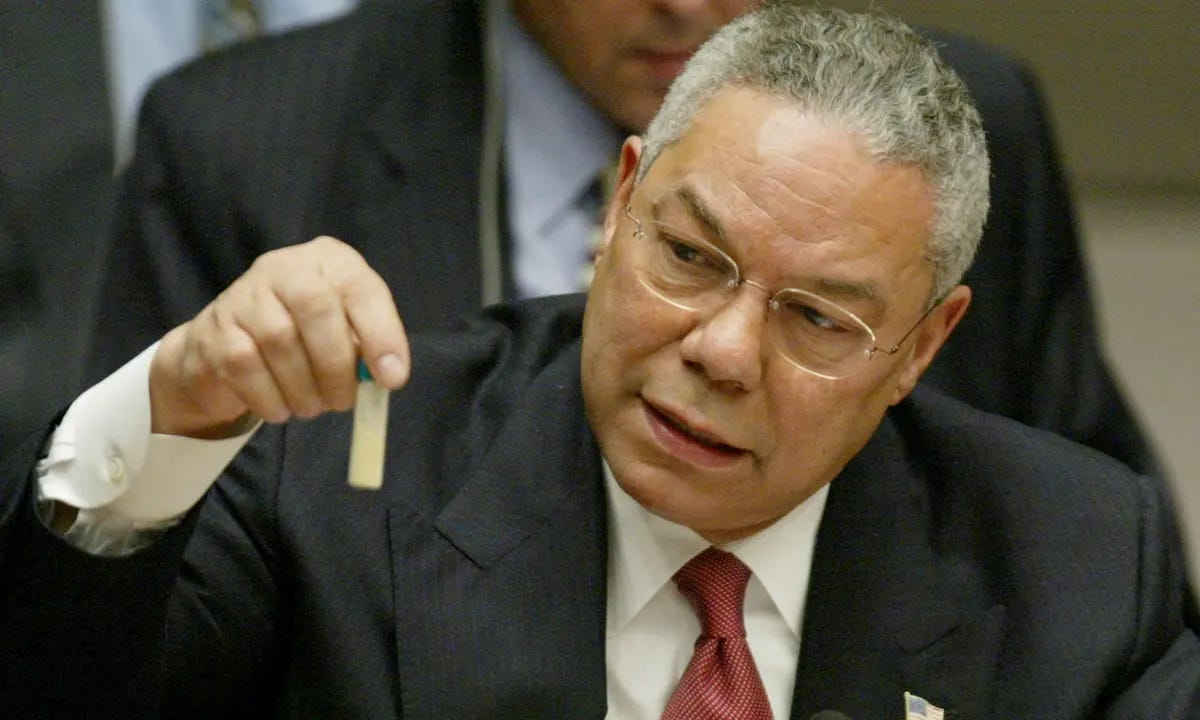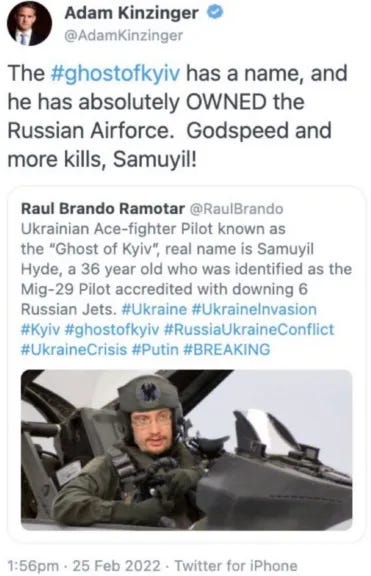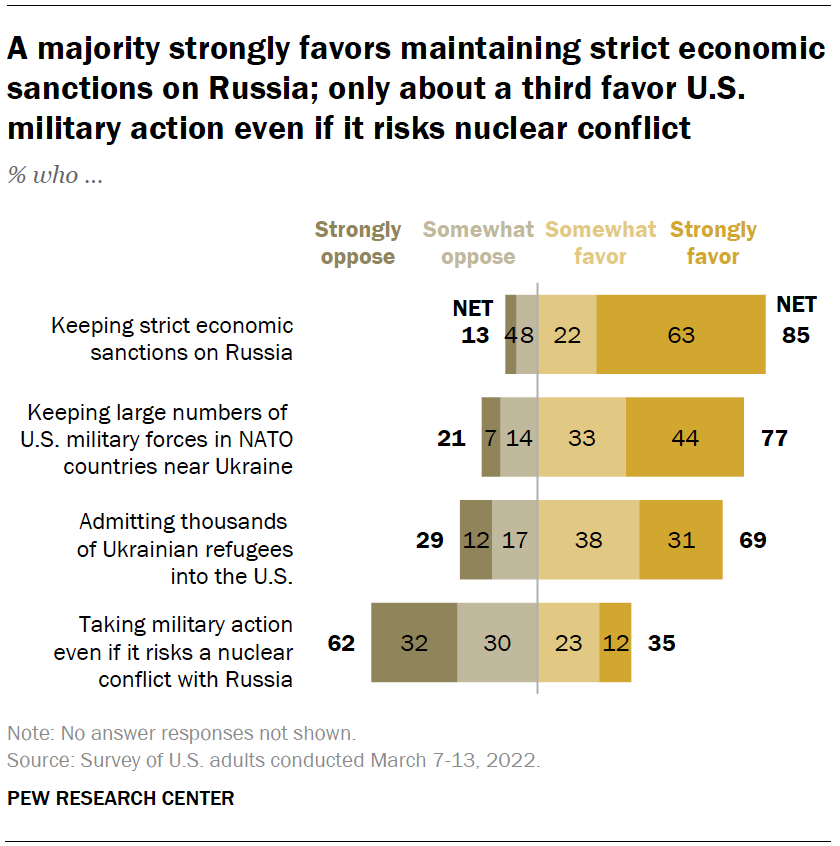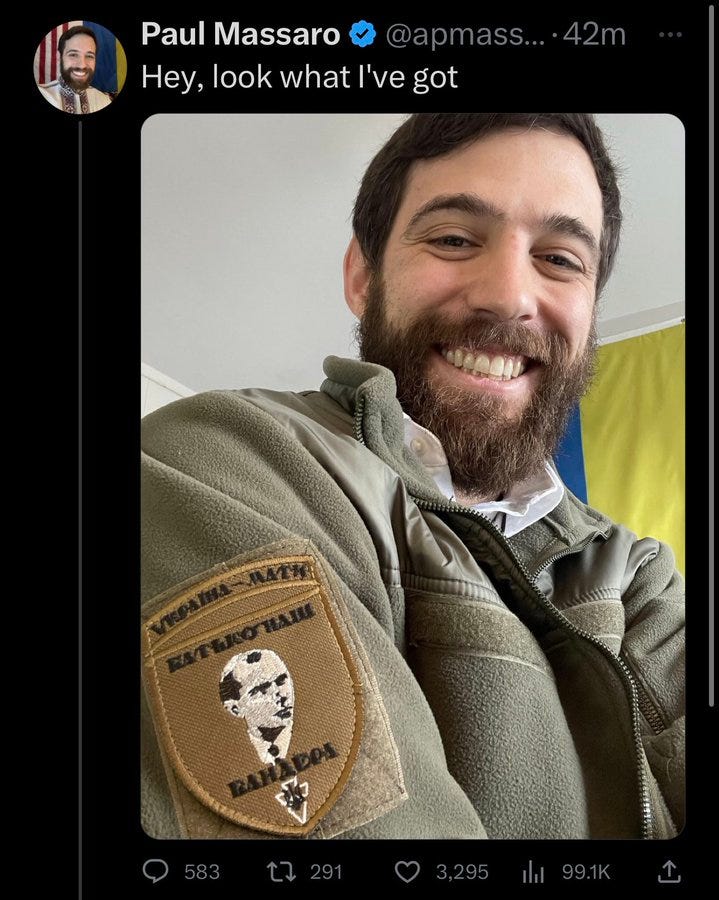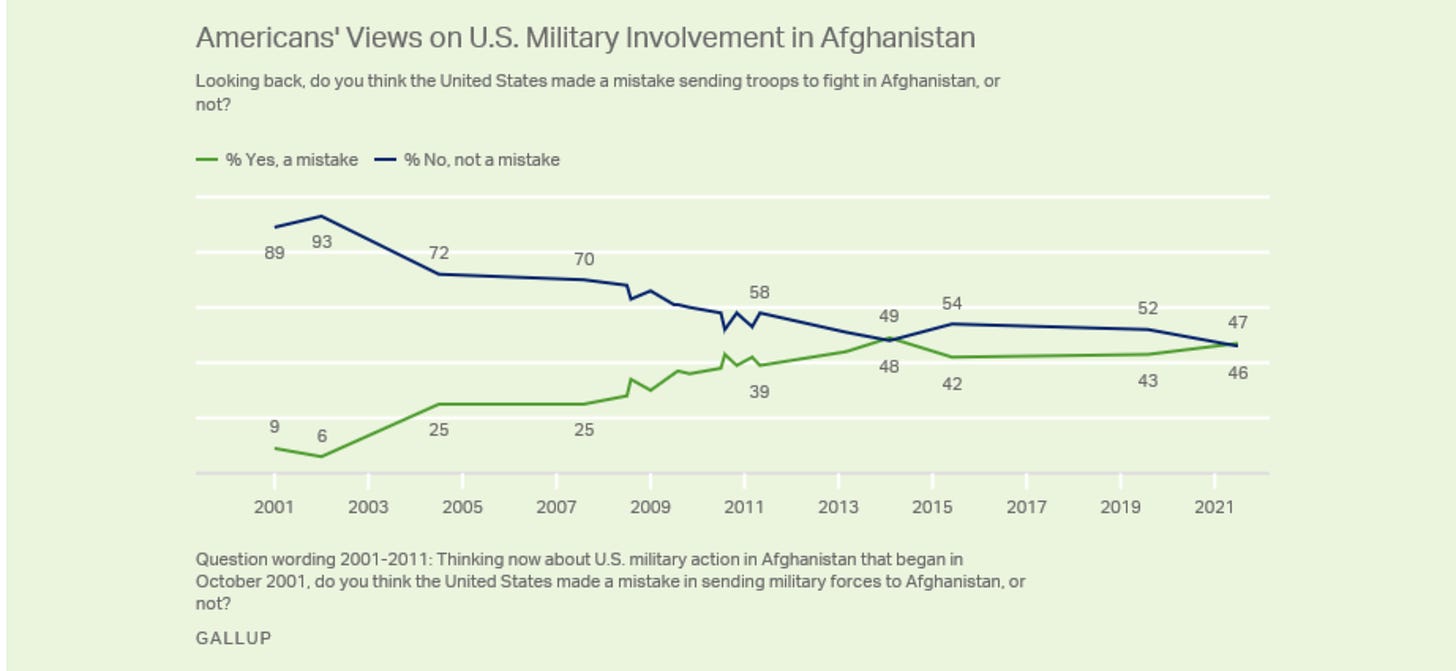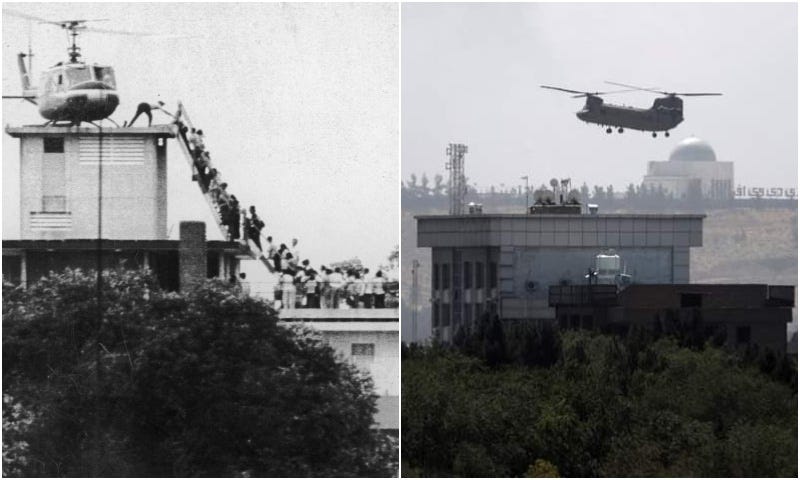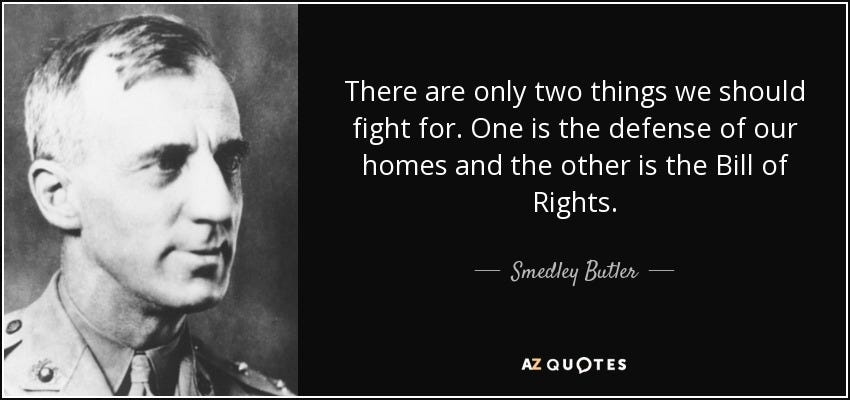War and America’s Identity
In the American consciousness, there is perhaps no event or series of events more ingrained than those of World War 2. The raising of the flag at Iwo Jima, the storming of the beaches of Normandy, and the fearless stand of the Screaming Eagles in the artillery-blasted forests of the Ardennes. The grainy videos and images have been permanently seared into our minds and reinforced by media in the decades since - Saving Private Ryan, Hacksaw Ridge, Dunkirk, and Band of Brothers, just to name a few. Whereas the Vietnam War was disastrous, whereas the Korean War was inconclusive (and has never truly ended), and whereas the Spanish American War is too far removed and too obscure to be felt by Americans on a visceral level, World War 2 occupies a unique spot in the American psyche. America had emerged as an unquestioned victor, with 1945 marking the beginning of Pax Americana. We celebrate the life of Audie Murphy and we lament his PTSD that haunted him, but we appraise the war as a straightforward struggle of good vs evil in a way that few other wars are broadly acknowledged.
On the other hand, the American consciousness has considerably less to say about World War 1. The last American veteran of WW1 passed away over a decade ago, and everyday references to the war are few and far between. For as often as you see flippant accusations of Hitler apologia in political discourse, when was the last time you saw an American accuse another of being a supporter of the Kaiser? Most Americans probably could not name their own nation’s commander in chief during that time, and they certainly could not begin to explain the prelude to the war, or the ramifications of Versailles. We have American public schools to thank for much of this historical illiteracy and the public’s generally small historical reference pool, but that’s not quite the full story.
World War 1 does not occupy the same kind of place in the American consciousness because of how truly dreadful it was. Every war is dreadful, and don’t let any armchair warriors convince you otherwise. While every war brings about unique suffering and atrocities, the horrifying trench warfare, the suffocating gas, the failed “over-the-top” charges, and the nightmarish images of no man’s land all paint an especially grim picture of World War 1. It is exceptionally difficult for Americans to recognize the conflict as a moment of glory, even though we emerged on the victorious side and our casualties were comparatively low. As it’s been said a million times before: The War to End All Wars… didn’t.
For many veterans of the Iraq and Afghanistan Wars, the war has never truly ended. The American government, despite raking in obscene tax revenues every year, has thoroughly failed to look after those that have come home with physical and mental scars. Ask any candid active duty servicemember about their living accommodations on deployment, and listen as the problems pile up. Even stateside, on-base accomodations for servicemembers and their families aren’t always served by the government’s unbelievable budget. This failure did not begin yesterday.
After WW1, many veterans were left out of work, and they publicly pressed for the benefits that they were entitled to. Retired Major General Smedley Butler, a well-regarded, competent, and highly decorated veteran (two Medals of Honor), was also a staunch advocate for unemployed veterans and a fiery opponent of the war industry. In his bluntly-titled book War is a Racket, Butler cataloged the many corporations that profited from the war and warned against future interventionism, many years before President Eisenhower delivered his famous warning about the military-industrial complex. Major General Butler died before witnessing the attack on Pearl Harbor and our subsequent retaliation.
Fake Nationalists
The war profiteers and the warhawks, of course, never went away. The chief advocates for war and interventionism in D.C. are joined by voters across every other town in America. Some people are merely misinformed, many others are willfully ignorant. So which one is William Hawkins?
If you don’t know who William Hawkins is, that’s okay, because nobody does. It shouldn’t surprise you to know that he’s a think tank creature, and a key member of the United States Business and Industry Council, an NGO that certainly would not stand to make money off of a war effort.
Hawkins has treated us to a doozy of a piece in recent days, wherein he chastises elected Republicans for their war skepticism. The title alone reeks of hideous John McCain-ism. You may recall that John McCain (who divorced his crippled wife to marry a younger woman) unironically suggested that Senator Rand Paul of all people was a covert agent for Russia. This was after The Maverick™ met with Moderate Syrian Rebels, and demanded that they be armed. McCain’s legacy is carried on by the likes of Lindsey Graham and Adam Kinzinger, two exceptionally unexceptional people. Not to be outdone, Hawkins is here to set the record straight on the War in Ukraine.
Russian President Vladimir Putin’s plan to blitz Ukraine back into a restored neo-Soviet Russian Empire failed quickly. The drive on the capital city of Kyiv collapsed, the assault on Kharkiv was turned back. Odessa on the Black Sea was never seriously threatened thanks to the stubborn defense of Mariupol and the Ukrainian counterattack in Kherson.
We’re off to a roaring start. For as much as I will say about the war, I want to stress that I don’t know the full situation. Neither does Hawkins. While the information age has in many ways lifted the fog of war, as battlefield intel is more quickly accessible by civilians than ever, the information age has ironically produced a new kind of fog of war - a digital clutter of half-truths, exaggerations, and outright lies. Raw footage is distressingly common, but often misinterpreted or mischaracterized in terms of location, time, significance, and authenticity. A localized tactical withdraw can be propagandized as a full route, and a Pyrrhic victory can be re-characterized as a decisive tide-turner. Both sides do this. As such, my general advice is to exercise a healthy degree of skepticism if you choose to follow on-the-ground reporting.
Now, if one were to read his opening, one might assume that the Russian army is in disarray and on its heels. What Hawkins fails to mention at any point in his article is Russia’s capture of the strategic city of Soledar. As of the writing of this article, Russian forces have (apparently) captured the village of Paraskoviivk, which sits on an important artery into another strategic city, Bakhmut. There are some reports that Russian forces are pushing into Bakhmut now. But I’m not actually interested in comparing battlefield carnage between two kleptocratic powers. I’m also not terribly interested in litigating which country has the rightful claim over the all-important village of Nova Rovtovnetovtovovskaiyyyahansk (population: 26 people and a broken tractor), because I doubt that either kleptocratic government would manage it well anyway.
I don’t think Hawkins is interested in battlefield statistics either, because the smug opening of his article is betrayed by the panicked and scolding tone of the rest of his screed. As we’ll see, we’re meant to believe that Russia is on its last legs, but that Ukraine also needs another blank check from the American taxpayer. You may also remember that Russia’s impending economic and political collapse were both foretold as far back as February of last year, and we’ve seen how those predictions played out.
The Ukrainians have mobilized for the defense of their independence.
This is a sentiment you’ll see recited among assorted neoliberalcons, both in office and on social media. I don’t know and I don’t care if William Hawkins actually believes in ideals of Ukrainian independence, but I do know that his fellow travelers do not.
Is Ukraine sovereign? Yes. Are they justified in the armed defense of their borders? Undoubtedly. But the claims of independence are utterly insincere when they come from the mouths of people like Joe Biden, Justin Trudeau, and most voices across Europe. Joe Biden and Kamala Harris the “border czar” are infamously weak when it comes to America’s borders - the main borders that they’re supposed to concern themselves with. Drug cartel violence spills over into American communities every day, and some scenes in Mexico are so grotesque that they might be mistaken for Donetsk, if not for the language on the road signs. Decades-long demands from the American people to secure the border have been met with silence at best, and outright contempt at worst. There is a growing movement to grant voting rights to illegal immigrants, a complete compromising of the American electoral system. The idea that Joe Biden or any Democrats fundamentally believe in national sovereignty is laughable. To the north, Justin Trudeau famously declared that Canada could be the “first postnational state”. The logical conclusion of Prime Minister Al Jolson’s dream is a Canada with no borders, a concept utterly incompatible with claims of sovereignty.
This sentiment extends to most of their counterparts in Europe. For as often as Brussels postures about democracy and Ukraine’s borders, they are very quick to act against nations like Poland and Hungary, whose democratically-elected conservative governments have taken a no-nonsense stance when it comes to abortion and admitting refugees of dubious origin and character. Sweden and Italy are also seeing the rise of similar right-wing forces, but the fact that they are doing so through the democratic process hasn’t tempered the alarmism and fascism accusations from the open border crowd. And in the UK, the democratically-decided Brexit vote was deliberately slow-walked and stymied by elected officials for years.
There is also no question that a serious independence movement within the US, irrespective of its origin or motivation, would be met with extreme opposition at the federal level. It’s very telling that one of the more longstanding and credible independence movements within the US - Puerto Rican independence - has been pushed aside by federal politicians in favor of Puerto Rican statehood, in a transparent attempt at adding two more permanently blue seats to the senate.
So however Hawkins feels about borders, the insincerely pro-nationalist chest-thumping from the rest of the Zelensky cheerleaders is not to be taken at face value. And for however you may feel about Ukraine’s history with Russia, it must be noted that for many periods in history, Ukraine’s present-day territory was recognized as Russian. The claims may or may not have merit at this point, but their shared cultural history runs very deep, and many ethnic Russians and Russian speakers reside in Eastern Ukraine to this day. “Postnational” drama teachers may not like it, but these ties don’t simply disappear.
Peace Doesn’t Sell
So, who is complaining of “fatigue” and calling for surrender?
I don’t know who’s calling for “surrender”, but I know that I am calling for fatigue. After two decades of ill-advised and incompetently-prosecuted wars sold to us by liars, I am very fatigued.
If Russia is as incompetent as Hawkins apparently wants us to believe, then another $10 billion aid package to Ukraine shouldn’t be necessary, and they should be able to fight their own war. And that’s the conclusion that Gaetz and the other Republicans will also reach - that they should prosecute their own war. Further involvement by America risks open war, and contrary to Hawkins’ next snide remark, I don’t think he’d be interested in marching down to a USMC recruiting station to flex on the “weak” Republicans if the “proxy” were suddenly stricken from this “proxy war”. For what little it’s worth, I have higher regard for American volunteers who put their money where their mouth is and actually go to Ukraine’s frontlines in their battle rattle. Hawkins and Lindsey Graham will never be counted among those people.
A handful of Republican members of Congress sitting in their comfortable offices in Washington 5,000 miles from the front lines. The leader of this group manifesting weakness of will and resolve in the face of blatant aggression in the strategic heart of Europe is Rep. Matt Gaetz (R-Fla.), who introduced the Ukraine Fatigue Resolution on February 9 with 10 GOP co-sponsors.
Everybody got that? You’re all a bunch of yellow-bellied cowards for not wanting to play chicken with a nuclear power. It must be the height of bravery for Dubya and Obama era politicians to order that Lance Corporal Gonzales and Private Smith go bleed in the mountains of Afghanistan. And I suppose that Smedley Butler would qualify as “weak” in Hawkins’ estimation.
It reads, “the United States must end its military and financial aid to Ukraine and urges all combatants to reach a peace agreement.” The wording is important. Aid is to be cut off before any peace agreement.
This is where we run afoul of history. What Hawkins fails to mention (on top of our $31.5 trillion debt and our past two decades of ill-advised wars) is that there have already been attempts at peace agreements. Several, in fact. French President Jacques Chirac attempted to broker an agreement between NATO and Russia, according to his diplomatic advisor, Maurice Gourdault-Montagne. The agreement, which would have made Ukraine a neutral zone of sorts and almost certainly forestalled the possibility of armed conflict, was stonewalled by Condoleeza Rice, who insisted on bringing Ukraine into NATO. Mind you, this desire to put another NATO power in Russia’s backyard was before Russia’s invasion of Georgia or the annexation of Crimea.
The second attempt at a peace agreement came less than a decade later, not long after the completely organic color revolution in Ukraine (which definitely had nothing to do with Victoria Nuland or the contemptible John Brennan) and the subsequent invasion of Crimea. The Minsk Agreements were originally pushed by Germany and again, France.
Most recently, former Prime Minister of Israel Naftali Bennett said that he had also attempted to mediate a ceasefire between the two nations shortly after the invasion, a move which was warmly received by Putin and Zelensky at the time. As before, the US was not interested.
It’s strange that Hawkins could have mentioned any one of these three episodes, but chose not to.
The outcome of the conflict is of no concern to Gaetz and company who are eager to turn a successful policy into a failure.
If the enrichment of military industrialists at home, the pillaging of the American treasury, and the prolonging of a war qualify as a “success”, then I’d hate to see what a failed policy looks like.
This is the pure doctrine of appeasement that holds that wars are not caused by aggression, but by resisting aggression. If only our side just sat it out, all would be calm beneath the heel of the conqueror.
This is a reductive assessment, at best. To hear Hawkins tell the tale, the conflict started in February 2022 ex nihilo. If Prime Minister Bennett and Maurice Gourdault-Montagne are to be believed, then the aforementioned negotiations were smothered by the US, and the hope for peace has been sitting at room temperature for a while now.
Gaetz complains that the U.S. has provided in total of $110 billion to Ukraine as if this was an inordinate amount. Yet, the Federal budget is $5.8 trillion, so Ukraine is merely a blip. Over $3 trillion in new domestic spending was rammed through by the Biden Administration in its first two years.
That’s… that’s not a good thing, William. Do I seriously need to explain why a $5.8 trillion budget atop a $31.5 trillion debt with a $1.4 trillion federal deficit is a bad thing?
I would actually not be bothered by the idea of heavy foreign aid to Ukraine, if it were strictly in the form of medicine and formula for widows and babies. And I’d momentarily put my concerns about spending on the back-burner if I had any confidence at all that the money wasn’t being misappropriated. But I’ve seen how audit demands are treated by the John McCain Fan Club, so I won’t hold my breath.
Republicans are committed to putting the nation’s fiscal house in order, but national security is not the place to look for cuts, since this is not the sector which has fueled the deficits.
Who wants to tell him? Hawkins goes on to lament the apparently decrepit state of our military output, despite the not-even-remotely-close state of the aircraft carrier race. As I’ve already noted, returning veterans from Iraq and Afghanistan have been grossly under-served despite the government’s unbelievable tax revenues. Apparently experimental weapon systems take higher priority over disabled veterans. Even so, it’s possible that America’s multi-billion dollar defense system can’t differentiate between spy aircraft and hobby balloons. If we can’t audit the tens of billions of dollars going to Kiev, can we at least audit the hundreds of billions of dollars going to Arlington? And while we’re here, could the people of East Palestine get a few crumbs or a perhaps a moment to speak on the floor of the House of Representatives?
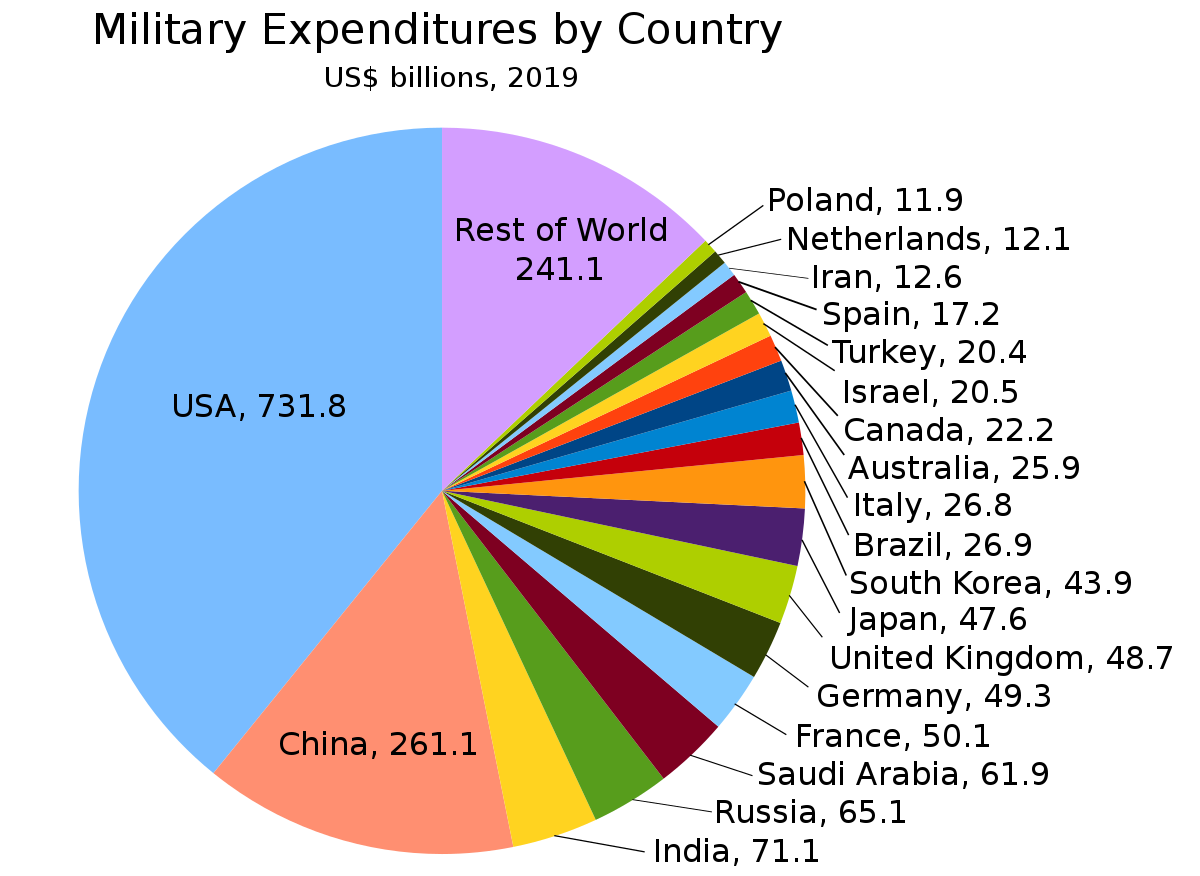
The congressman has supported some actions against the Chinese threat, but can’t seem to connect the dots between the ambitions of Putin and Chairman Xi Jinping. Yet, just before Putin invaded Ukraine, he and Xi declared they had an “unlimited partnership” in rejecting the U.S.-led world order.
It was long understood after the collapse of the Soviet Union that it was inadvisable to put Russia in a corner. Alienating Moscow always risked pushing them into Beijing’s sphere. As others have noted, the actions of the neoliberalcons should be scrutinized for consistency and prudence, if we’re to believe that Putin is a raving madman. In any case, after the halting of the peace agreements and years of sanctions (not to mention endless hoax-mongering), I don’t know what Hawkins expected.
The First Casualty
It’s to be expected that every war will have propaganda. During Germany’s invasion of Poland in 1939, Polish cavalry were described as leading preposterous lance and saber charges against German armor. This bit of propaganda was picked up and repeated by the Soviets, and the myth has stuck around since then. There is a kernel of truth behind the lie, in that Polish cavalry were successfully employed against German infantry at times, and some Polish cavalry were equipped with anti-tank guns and used effectively, but the less sensationalist truth has mostly been buried beneath the saber charge myth.
We are seeing the same thing play out in real time. Both Kiev and Moscow are guilty of this, though if the flags in Twitter bios are anything to go by, then the Ukrainian propaganda is clearly more convincing, or at least more pervasive.
By now you’ve seen the images and the read the stories. The valiant warriors of Snake Island stared down a Russian battleship and raised their collective middle finger before they were destroyed. A single Ukrainian pilot single-handedly shot down multiple Russian aircraft over the skies of Kiev. And Zelensky himself was photographed in full battle rattle on the Ukrainian frontlines.
None of that happened. As I said earlier, propaganda is to be expected. These fake stories have circulated not only as attempts to rally the Ukraine populace, but also to keep the rest of the world engaged. The attempts have worked. To this very day there are people who insist that a small team of defiant Ukrainians were massacred on Snake Island after staring down a battleship. Western media outlets and commentators happily press these fake stories, and if they issue any retractions, they are very quiet, and the stories are qualified as “necessary to maintain morale”.
But the propaganda is becoming dangerous. The obvious long term intent behind the propaganda is to pull NATO further into the conflict. American public support for Ukraine remains high, but the support for direct troop involvement is much lower. Hawkins and the social media propagandists know this, so for the time being the hero stories must ratchet up, and the Western public must be convinced that the war is being decisively won by Kiev, but that any diminished financial support will necessarily lead to Ukraine’s collapse. Even in the event of overt US military intervention, there is little chance that William Hawkins or Max Boot will be asked to lace up their boots or throw on some ACUs, so it suits them just fine either way.
The propaganda often reaches truly preposterous levels. There are persistent rumors that Putin is going to be deposed any day now. Other people speculate that he has cancer - people who tend to believe that John Fetterman is mentally fit for office. While I don’t have access to Putin’s medical records, I’m at least somewhat certain that he hasn’t been couped. But give it a few years and maybe Victoria Nuland will show up to change that.
It was also widely claimed that Russia had attacked their own Nord Stream pipeline last year because… Moscow just felt like it, I suppose. Journalist Seymour Hersh has come out in recent days to shatter that narrative. If Hersh and his source are to be believed, then Joe Biden has committed an act of war against a nuclear power without congressional approval, in nominal defense of a non-NATO state, while compromising the gas imports of an ally that is already struggling with a self-inflicted energy crisis.
But perhaps most striking of all the propaganda is the unbelievable PR makeover that Ukraine has enjoyed over the past 12 months. People who previously couldn’t find Ukraine on a map (or find their own country on a map, for that matter) have become extremely enthusiastic and committed to the Ukrainian cause. Any sentiment perceived as being skeptical or critical of Ukraine is met with white-hot rage. Zelensky himself has quite literally become a celebrity in the West. This adoration is not merely confined to the dregs of ShareBlue Twitter. On more than one occasion, Adam Kinzinger and Den Crenshaw have gotten into embarrassing slap-fights with anonymous profiles, for the unforgivable crime of insulting Ukraine. War naturally brings out strong emotions, but I can’t say I recall them reacting so strongly to the decades of smears and barely-veiled disdain levied at American voters in “flyover” country, but I guess we now know who their real constituents are.
Ukraine’s PR makeover is truly something to behold, and the contradictions pile up on a daily basis. There is not much concern from anti-discrimination activists and Human Rights Appreciators that the coverage could spill over into anti-Russian hatred, which has happened without very much attention. Most American conservatives have been conditioned to roll their eyes at the left’s endless and flippant Nazi comparisons, and rightfully so. But when it comes to Ukraine, there is a significant number of actual Nazis operating in the country. These are not garden variety patriots, but goons who proudly wave sonnenrad flags, tattoo wolfsangel runes across their chests, and commit wanton violence against ethnic minorities, including Russians and Jewish people.
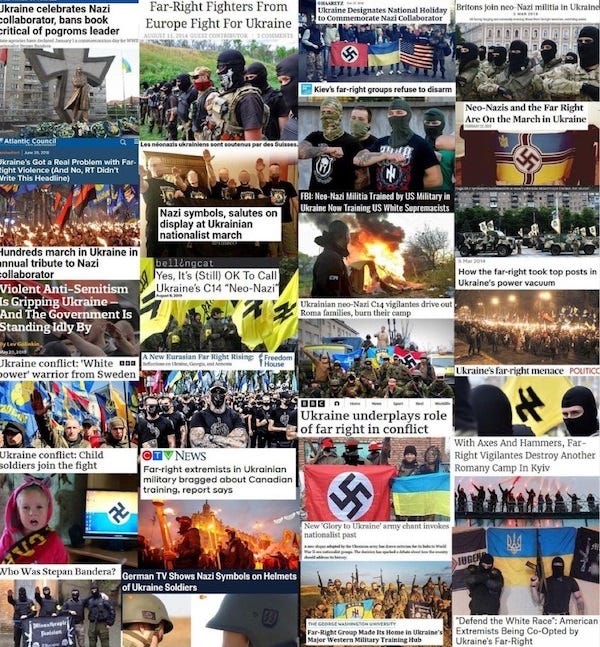
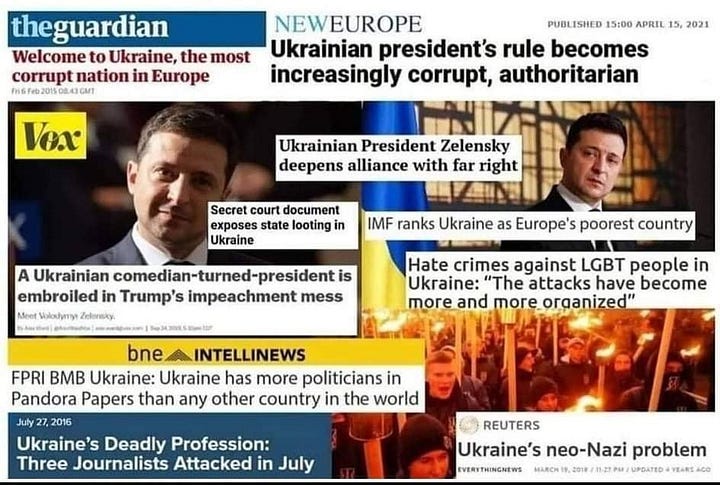
Don’t misunderstand me, I don’t believe that Putin is some sort of George Washingtonian champion for liberty, and I don’t believe that every flag-waver in Ukraine is secretly a Nazi. Nationalism is frequently conflated with fascism in the West, and I have no desire to see regular national self-determination smeared as such. Putin’s fiery denouncements of Ukrainian Nazism may be overstated, but they do have some merit.
The images of Roman-saluting thugs carry little to no weight among those who have decided that Ukraine is The Most Important And Blameless Country in The World Right Now™, even if every other moment of their lives is spent looking for Nazis to punch. The images and Russophobic horror stories are frequently dismissed as “Kremlin disinformation” (sound familiar?). If Western liberals don’t ignore the images outright, they will desperately cling to vacuous non-responses like “it’s complicated”. Of course, this kind of nuance is never afforded to regular right-wing groups who demand say, secured borders, even while disavowing violence. As we’ve already seen with the arming of the “moderate” Syrian rebels, we have no Earthly idea if weapon systems will end up in the hands of Banderist militias, of which there are more than a few.
Stepan Bandera, in short, was Ukraine’s answer to Vidkun Quisling. Bandera was a brute who collaborated with the invading Germans in the name of independence from the USSR, and his faction committed violence against Poles, Russians, and Jewish people. He is respected among a non-insignificant number of Ukrainians, where they see him as important for Ukraine’s independence movement. The Western-backed former president, Viktor Yushchenko, is chief among them. His Russian-backed successor, Viktor Yanukovich, is not.
You can imagine why a lot of people, especially in Russia, hold Bandera in disdain, but that doesn’t stop geniuses like senior policy advisor Paul Massaro from fanboying over him. It’s almost like these people have no idea who or what they’re talking about.
Banderism, in one form or another, survives to this day. The highly-controversial Svoboda Party is a group that carries his water. And it must be pointed out that Svoboda and other groups like Right Sector were very active during the completely organic 2014 color revolution.
Compare and contrast the calls for “nuance” with the attitudes displayed towards America’s earliest nationalists and independence leaders, like George Washington and Thomas Jefferson. Assorted leftists in America tend to have very negative and decidedly unsophisticated opinions about most of the Founders, irrespective of how their views were initially typical for the era, yet changed with time. In Ukraine, a statue of Stepan Bandera towers over the city of Lviv. In the US, not even statues of Teddy Roosevelt are safe.
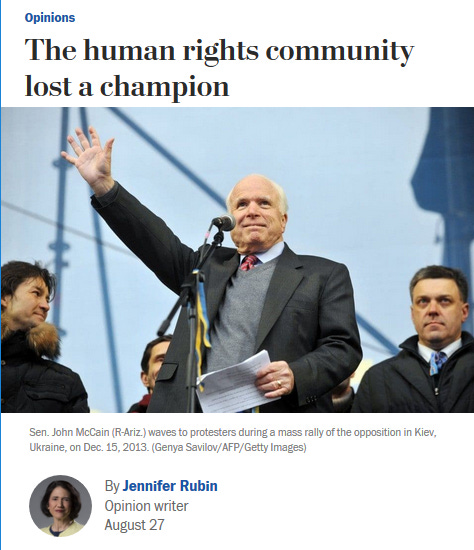
War makes for strange bedfellows indeed. I promise that you will find no shortage of contemptible characters within the Russian army as well, thugs with schutzstaffel lightning bolts inked on their necks, and the like. But the double-standard on political extremism, the dearth of historical discussion, and the American State Department’s fingerprints on Maidan should all give you pause.
Fighting for Freedom
The popular understanding surrounding the Russo-Ukrainian War is exceedingly simple: Russian tyranny trampling on Ukrainian freedom. Russia is Goliath, and Ukraine is David. Ukraine and its NATO backers carry the same torch handed down to them by the liberty-crusading Allies of WW2, while Russia and a few international backers have accepted the mantle of the genocidal Axis. We’ll just pretend that Turkey isn’t part of NATO, for now.
The “Freedom vs. Tyranny” dichotomy is emotionally powerful indeed, and much of that power comes from its simplicity. Freedom may mean different things to different people, but as a concept it resonates across time and culture. It is especially powerful in the minds of the American public, whose founding iconography is drenched in it. “Give me liberty, or give me death!”
Unfortunately, the American public’s sense of freedom and sense of justice were both exploited. After the 9/11 Attacks, America was left wounded, yet united and ready to enact righteous justice. It’s almost unfathomable now, but the blundering George W. Bush enjoyed a 90% approval rating for a time, becoming a rallying point for the entire nation. The strike back at al-Qaeda in Afghanistan was initially popular.
As casualties mounted and mission creep set in, public support in the US cratered. The Iraq War would become even more unpopular, with the original casus belli being recognized as a horrible intelligence failure at best and an outright lie at worst. Today Iraq barely stands as a dysfunctional, corrupt, sectarian quasi-democracy. The twenty-year effort in Afghanistan collapsed in a matter of weeks before the entire world. By the time all was said and done, Americans - especially gold star families - were left to ask “was it all worth it?
Western ideals of freedom did not take hold in these countries, and it must be asked if Western nations themselves are even pretending to live up to Western ideals of freedom. If the leaders of the West currently hold any freedoms to be truly unassailable, then what are those freedoms? The freedom to kill an unborn child? The freedom to spread insane ideologies in school classrooms? The freedom to loot and riot with little to no consequence?
In Ukraine, churches regarded as being too close to Russia have been banned. Pro-Russian political parties have also been banned, including the Opposition Platform - For Life, a longstanding party that commanded limited popularity in the western regions but considerable popularity in the more Russian-aligned eastern regions, for its pro-Moscow platform.
It isn’t totalitarian for Ukraine or any other nation to tamp down on groups in open armed revolt against the government or the people. But it’s not correct to claim that all of the outlawed pro-Russian churches, parties, and TV stations have been in armed revolt. The Opposition Platform openly denounced the invasion, but their ban was upheld all the same. If Ukraine purports to be free and democratic, then are citizens permitted to peaceably assemble and organize for closer alignment with Russia? It should also be noted that groups with significant ethnic militia elements like the Right Sector and Svoboda have not been banned.
Is there a path for freedom at all for a post-war Ukraine? If it were annexed by Russia as neoliberalcons have warned us, then the answer is a flat no. Then again, would you truly call Ukraine free and independent if they emerged in one piece but with cultural or economic “expectations” placed upon them by the EU? Brussels will be complaining about Kiev’s unacceptable fossil fuels and wheatfields before the ink on the peace deal even begins to dry. And if Seymour Hersh’s account of the Nord Stream sabotage is accurate, then Germany has completely accepted a serious attack on its already struggling energy sector from an ally, making one of the most powerful nations in Europe not much more than a vassal for Washington DC. Even if Russia leaves the picture, the neoliberalcons appear to have already found their next “illiberal” boogeyman in Budapest. Are you ready for the next completely organic color revolution?
“History Doesn’t Repeat, But it Surely Rhymes”
Americans were told by their wise leaders that Afghanistan would not be another Vietnam. We know how that story unfolded. The mission devolved from justice to incoherence, with servicemembers expected to operate as soldiers, democratic diplomats, and cultural bridge builders for a land that wanted virtually nothing to do with the West or Washingtonian freedom. Thousands of American soldiers perished, many before they could create families of their own. Many of those that made it home were permanently maimed in mind, body and spirit. Many more Afghan civilians died. Some by horrendous error, and others by pure malice.
Americans were lied into Iraq. Our sense of justice and regard for democracy were cynically exploited to promote “nation building”. Many American veterans and Iraqi civilians suffered the same fate as their counterparts in Afghanistan. The champions of democracy have never apologized, and there is no chance that they would choose to live in Baghdad, in the aftermath of their “nation building” experiment. There is even less of a chance that they will trade their suits and ties for ACUs and boots. Their motives are not pure.
Brinksmanship with a nuclear power is a very dangerous game. Americans have every right to be fatigued.
Russia should stay out of Ukraine. So should NATO.
War is a racket.



